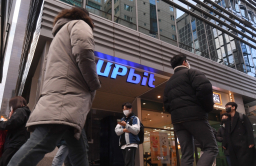-
KOSPI 2812.05 +41.21 +1.49%
-
KOSDAQ 756.23 +6.02 +0.80%
-
KOSPI200 376.54 +6.64 +1.80%
-
USD/KRW 1373 3.00 -0.22%
Presidential candidates vow to legislate digital assets
The two contenders are vying to appeal to 7 million individual investors of digital assets
By
Jan 20, 2022 (Gmt+09:00)
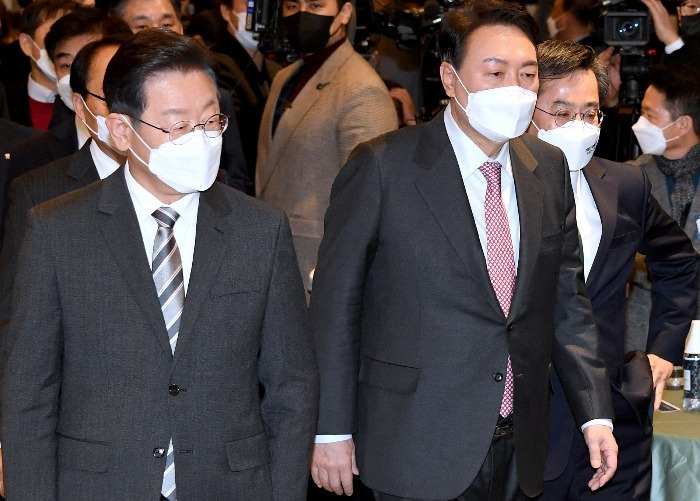
Ahead of the 20th presidential election slated for March 9, candidates from both parties have vowed to legislate and systemize digital assets if elected to the country’s top political post.
The move is in sharp contrast to the incumbent Moon Jae-in administration’s stance of not recognizing digital assets -- cryptocurrencies in particular -- as legitimate investments.
In just over a month, voters will decide between two unconventional candidates. No matter who wins, the next president will be the first in South Korea’s democratic history without National Assembly experience.
The ruling Democratic Party has selected former Gyeonggi province governor Lee Jae-myung to succeed outgoing President Moon, while the opposition People Power Party (PPP) has nominated Yoon Suk-youl, a former prosecutor general under the same administration.
Currently, there are some 7 million individual investors of digital assets in Korea. The presidential candidates are hoping that imbuing legitimacy into digital assets could help win the hearts of voters in their 20s and 30s.
The liberal party's Lee pledged to legalize initial coin offerings (ICOs) and security token offerings (STOs). Yoon, the conservative’s choice, vowed to legalize initial exchange offerings (IEOs) and offer tax exemptions on digital assets’ return on investment of up to 50 million won ($41,966.)
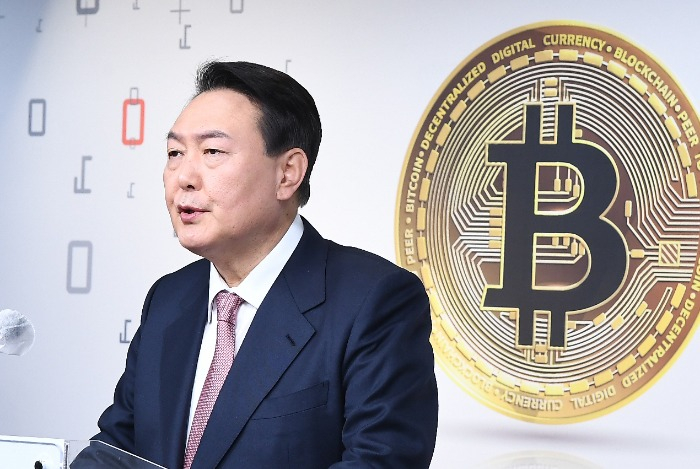
IMBUING LEGITIMACY TO DIGITAL ASSETS
On Wednesday, Lee Jae-myung met with the CEOs of Korea’s four largest cryptocurrency exchanges – namely Upbit, Bithumb, Coinone, and Korbit – and other industry insiders at the Dunamu headquarters in southern Seoul. Dunamu is the operator of Upbit and has a few subsidiaries including leading corporate venture capital firm Dunamu & Partners.
Lee pledged to deal with the legislative vacuum regarding digital assets in a prompt manner. “I will guarantee diverse business opportunities by legitimizing the digital assets industry,” the former lawyer said.
An initial coin offering, also known as an initial currency offering, is a type of funding using cryptocurrencies. If elected, Lee plans to allow ICOs once a safeguard is put into place.
Security token offerings, a combination of the blockchain technology and requirements of regulated securities markets, will also be allowed. STOs are typically the issuance of digital tokens on a blockchain in the form of regulated securities.
The former governor did not shy away from criticizing the Moon administration's stance on cryptocurrencies. “It was problematic to delay market development by not only prohibiting the issuing of digital assets but also by denying the industry’s existence,” Lee told the industry heavyweights at the press event.
A major part of Lee’s plans to provide business opportunities lies in putting the real estate market on a blockchain platform. While meeting with the industry leaders, Lee discussed the possibility of launching a cryptocurrency for real estate investment.
The 57-year-old said that as speculative real estate investing is an issue of national scale, providing the opportunity to every citizen to realize the dream of owning a piece of his or her own property would be great.
Last year, Lee’s camp was reportedly working on developing real estate digital assets worth a whopping quadrillion won in total.
Bithumb CEO Heo Baek-young welcomed the idea by saying; “A lot of repeating problems to real estate investment can be resolved on a blockchain.”
Prior to meeting with the industry experts, Lee created a Bithumb account in front of the press. Using the new account, Lee minted his hand-written political pledge into an NFT.
The NFT is not available for trade until there is a set policy regarding the National Election Commission’s use of political funds involving digital assets. If and when the token sells, Lee said that the entire profit will be donated.
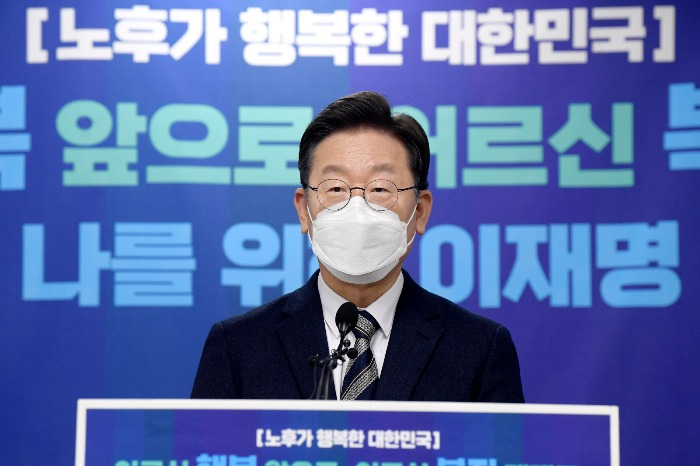
TAX EXEMPTIONS
Yoon also revealed his plans for the digital assets arena on Wednesday.
The right-leaning candidate said he plans to offer tax exemptions on cryptocurrency’s return on investment of up to 50 million won, which is equivalent to the amount eligible for tax exemptions on income from securities. That is a sizable increase in tax benefits from the current exemption on income from digital assets investment of up to 2.5 million won.
But when that will happen is unclear.
Yoon has maintained the “overhaul first and taxation second” approach – meaning that there should be policy consensus on digital assets before the taxing of them can begin.
Come Jan. 2023, Seoul will impose taxation on income from digital assets. Industry insiders interpret Yoon’s remarks as his willingness to delay the start date for taxing cryptocurrency income.
The former prosecutor said he will allow domestic issuance of cryptocurrencies and establish a government agency dedicated to promoting the digital industry.
At present, there is a de facto ban on the domestic issuance of cryptocurrencies. “To prevent fraudulent activities such as Ponzi schemes, we will begin with allowing initial exchange offerings,” explained Yoon.
As for a new government agency dedicated to promoting the digital industry, Yoon said it will work as a control tower for cryptocurrencies and NFTs. By revising the basic law on digital assets, Yoon plans to order investigations into unfair trading practices and retrieve the income accordingly.
Yoon pointed out there are only four exchanges currently compatible with existing banks. The 61-year-old said he believes such monopoly concerns could be resolved through a system that can objectively evaluate the validity of a digital asset exchange.
Write to Hyeong-ju Oh, Ji-young Lee, Sang Hoon Sung at ohj@hankyung.com
Jee Abbey Lee edited this article.
-
Dec 15, 2021 (Gmt+09:00)
-
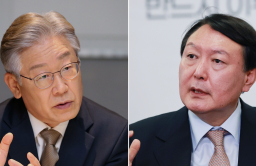 Presidential electionMain opposition leads ruling party in poll ahead of 2022 election
Presidential electionMain opposition leads ruling party in poll ahead of 2022 electionNov 09, 2021 (Gmt+09:00)


